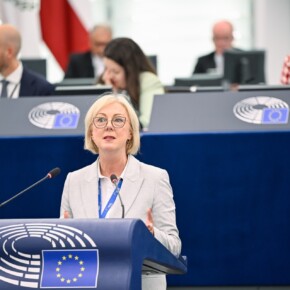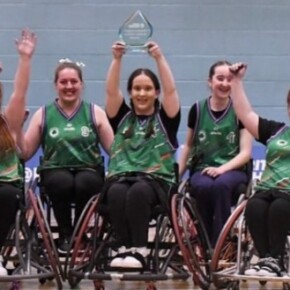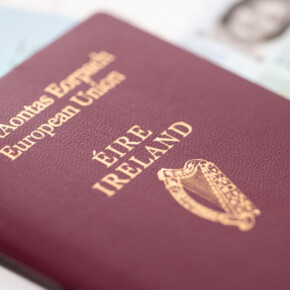TRAVEL: Globetrotters warned about health complacency
Dublin People 09 Dec 2016
NEW research has found that more than half of Irish adults risk coming back from holidays with something nastier than a tan because they don’t think about getting vaccinations before travelling.
Only 44 per cent of us consider getting vaccinations, and less than seven per cent think it’s the most important issue to plan before going abroad.
Now a new campaign launched by travel writer and broadcaster Fionn Davenport, on behalf of Sanofi Pasteur MSD, is urging Irish long-haul travellers not to be complacent when it comes to their travel health.
Just 45 per cent of younger adults (under 25) get their recommended vaccinations before travelling compared to only 31 per cent aged between 55-64 and 41 per cent of over 65s.
However, 85 per cent of Irish overseas travellers believe that vaccination is an important element of a trip to a long-haul destination where diseases uncommon at home are found.
Other findings include:
• 28 per cent of adults routinely talk to a healthcare professional about vaccination advice before taking a trip abroad.
• 51 per cent of Irish overseas travellers have previously had a vaccination in the course of planning for an overseas trip.
• Over one in eight (13 per cent) of Irish overseas travellers are aware of someone catching Malaria while travelling.
• Diphtheria and Tetanus are the most prevalent vaccines (22 per cent) with just under one in five (19 per cent) having a Hep B vaccine, closely followed by Typhoid fever.
• On a lighter note 45 per cent of adults said Graham Norton is the celebrity that they would most like to go on holiday with.
The findings, launched as part of the Healthy Travel information campaign, reveal that only 40 per cent of Irish adults get their recommended vaccinations before going on holiday ranking it third behind having appropriate travel insurance (73 per cent) and making sure they have any medication they need (67 per cent).
Dr Jack Lambert, Consultant in Infectious Diseases, Mater and Rotunda Hospitals and University College Dublin, is backing the campaign and he says travellers to at-risk countries need to be more vigilant when it comes to their travel health.
“A pre-travel health assessment for advice on preventative measures including vaccination, insect bite avoidance, good food and water hygiene should be on the top of your travel checklist to ensure you get the most out of your trip, especially when going to locations where diseases uncommon in Ireland can be contracted easily,” he adds.
“People go on exotic holidays all year round. Whether it is an around the world trip or a romantic honeymoon, it is essential that pre-travel advice is sought well in advance of a trip so that all medical needs and necessary preventative precautions are discussed with a healthcare professional, leaving enough time to prepare yourself before you travel.
“Don’t leave it until the last minute to get vaccinated, contact your GP, practice nurse or travel health clinic after you book your trip, as some vaccinations may need to be administered six to eight weeks in advance.”
Irish residents took almost 7.1 million foreign trips in 2015, an increase of six per cent on the 2014 figure.
Experienced travel writer Fionn Davenport has produced a series of insightful travel blogs to coincide with the campaign.
The blogs, available on the website www.HealthyTravel.ie, will be in text and video format and offer a range of travel tips for travellers of all ages and budgets.
“Irish people want to have a fun time on holiday and this is highlighted by this research which found that Graham Norton is the celebrity that Irish people most want to go on holiday with,” Davenport said.
“No one should have their trip abroad potentially ruined because they didn’t take all the necessary precautions before and during their travels.
“When travelling to exotic countries it is very important to maintain a good standard of sanitation and hygiene, as disease can be spread through contaminated food and water, and avoid mosquitoes by using insect repellent or preventative medication where necessary.
“My main advice would be to check with your healthcare professional when you have booked your flights so that they can advise you of which precautions you can take or vaccinations you might need, for those areas.
“You can then get them in advance of your trip to make sure you have a healthy travel experience.”
TRAVEL STATS
• Graham Norton is the celebrity that Irish adults would most like to go on holiday with (45 per cent), followed by Bill Clinton (10 per cent) and Anne Doyle (7 per cent).
• Something to read is the item that Irish travellers cannot travel without with 38 per cent of people selecting it ahead of beauty products (15 per cent) and their favourite music playlist (12 per cent).
• Western Europe leads the way as the most recent destination visited, with just over four in 10 (42 per cent) saying this was the case.
• Almost three in 10 (27 per cent) families will have spent in excess of €3,000 on leisure holidays this year, with the figure just one in five (20 per cent) for those travelling without dependent children.
• A third (33 per cent) of younger adults worry about catching an illness on an overseas trip compared to just 18 per cent of 55-64 year olds and 22 per cent in the 65 + age bracket.
• Females are significantly more likely to ensure they have their vaccinations (45 per cent) compared to 35 per cent of men. A total of 47 per cent of females think to check if vaccinations are needed before travelling compared to 40 per cent of males.
• For more information and travel advice, and to read Fionn Davenport’s travel blogs, visit www.HealthyTravel.ie. A Healthy Travel booklet is available for download and a handy travel checklist with useful phone numbers is included on the website.
- TRAVEL: Globetrotters warned about health complacency












